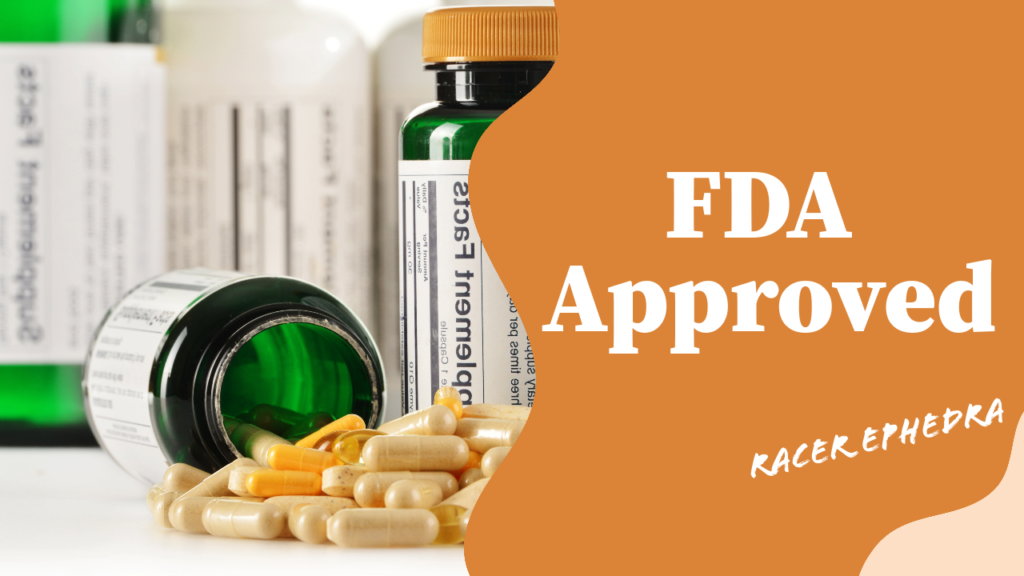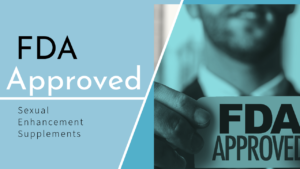In the quest for weight loss, many individuals turn to diet pills as a solution. These pills, also known as weight loss supplements, are designed to aid in shedding those extra pounds. However, it is crucial to ensure that the diet pills you choose are safe and effective. That’s where the approval of the Food and Drug Administration (FDA) comes into play. In this comprehensive guide, we will explore diet pills approved by the FDA, their benefits, potential risks, and how to make informed choices when it comes to weight loss supplements.

The Role of FDA in Dietary Supplements
The FDA plays a crucial role in regulating dietary supplements to ensure their safety and efficacy. Under the Federal Food, Drug, and Cosmetic Act (FD&C Act), dietary supplements are defined as products that contain “dietary ingredients” and “other ingredients.” Dietary ingredients include vitamins, minerals, herbs, amino acids, and dietary substances that supplement the diet. Other ingredients include fillers, binders, preservatives, and flavorings. (1)
The FDA does not approve dietary supplements for safety and effectiveness before they are marketed. However, manufacturers, packers, or distributors are required to report any serious adverse events associated with their products to the FDA. This reporting helps the FDA identify and remove unsafe products from the market. Consumers who experience adverse reactions or illnesses from dietary supplements are encouraged to report them to the FDA to protect the public from potential harm. (2)
Approved Diet Pills by FDA
The FDA has approved certain diet pills for weight management based on rigorous evaluation and scientific evidence. These approved diet pills have undergone clinical trials to demonstrate their safety and effectiveness. Let’s take a closer look at some of the FDA-approved diet pills: (3)
1. Xenical (Orlistat 120mg)
Xenical, approved by the FDA in 1999, is a prescription diet pill used for obesity management. It is intended to be used in conjunction with a reduced-calorie diet and helps reduce the risk of regaining weight after prior weight loss. Xenical works by blocking the absorption of dietary fat in the intestines, resulting in reduced calorie intake. It is important to note that Xenical may cause side effects, including gastrointestinal discomfort and changes in bowel habits.
2. Alli (Orlistat 60mg)
Alli, the over-the-counter version of Xenical, was approved by the FDA in 2007 for weight loss in overweight adults. Like Xenical, Alli is used in conjunction with a reduced-calorie and low-fat diet. Alli works by blocking the absorption of dietary fat, helping individuals achieve their weight loss goals. It is crucial to follow the recommended dosage and guidelines to minimize potential side effects, such as oily spotting and loose stools.
3. Qsymia (Phentermine and Topiramate)
Qsymia is an FDA-approved diet pill that combines two medications, phentermine and topiramate, for weight management. Phentermine is an appetite suppressant, while topiramate is an antiepileptic medication that may help with weight loss. Qsymia is intended for use in individuals with a body mass index (BMI) of 30 or higher or a BMI of 27 or higher with weight-related conditions10. Qsymia may cause side effects, including increased heart rate, mood changes, and tingling sensations11.
4. Contrave (Naltrexone and Bupropion)
Contrave is an FDA-approved diet pill that combines two medications, naltrexone and bupropion, for weight management. Naltrexone is used to treat alcohol and opioid dependence, while bupropion is an antidepressant and smoking cessation aid. Contrave is intended for use in individuals with a BMI of 30 or higher or a BMI of 27 or higher with weight-related conditions. Side effects of Contrave may include nausea, headache, and increased blood pressure.
Evaluating Diet Pills for Safety and Effectiveness
While FDA-approved diet pills undergo rigorous evaluation, many other weight loss supplements flood the market without FDA approval. These unapproved diet pills may pose significant risks to your health. To make informed choices and prioritize your safety, consider the following factors: (4)
1. Check for FDA Approval
Ensure that the diet pill you are considering is approved by the FDA. Approved diet pills have undergone rigorous testing and are deemed safe and effective for weight management.
2. Consult with a Healthcare Professional
Before starting any weight loss supplement, consult with your healthcare professional. They can assess your individual needs, evaluate potential risks, and provide guidance on the most suitable options for you.
3. Research the Ingredients
Thoroughly research the ingredients in the diet pill you are considering. Look for scientific evidence supporting their effectiveness and safety. Be cautious of ingredients that are banned or have a history of adverse effects. (5)
4. Read Labels and Product Information
Carefully read the labels and product information of diet pills. Look for clear instructions, recommended dosage, and any potential side effects or interactions with other medications.
5. Stay Informed of Safety Alerts
Regularly check for safety alerts and recalls issued by the FDA. This will help you stay updated on any potential risks associated with specific diet pills.
6. Consider Your Overall Health
Take into account your overall health and any pre-existing medical conditions you may have. Certain diet pills may not be suitable for individuals with specific health concerns.
7. Follow Recommended Dosage and Guidelines
Always follow the recommended dosage and guidelines provided by the manufacturer or healthcare professional. Taking more than the recommended dosage does not necessarily lead to faster weight loss and may increase the risk of adverse effects.
8. Monitor Your Body’s Response
Pay attention to how your body responds to the diet pill. If you experience any adverse effects or notice changes in your health, discontinue use and consult with your healthcare professional.
Conclusion
FDA-approved diet pills can be a helpful tool in achieving weight loss goals when used responsibly and under the guidance of healthcare professionals. It is important to prioritize safety and make informed choices when it comes to weight loss supplements. By considering FDA approval, consulting with healthcare professionals, researching ingredients, and staying informed, you can make choices that support your overall health and well-being. Remember, weight loss should always be approached holistically, incorporating a balanced diet, regular exercise, and healthy lifestyle habits.
Disclaimer: This article is for informational purposes only and should not replace professional medical advice. Always consult with a healthcare professional before starting any dietary supplements or weight loss regimen.



